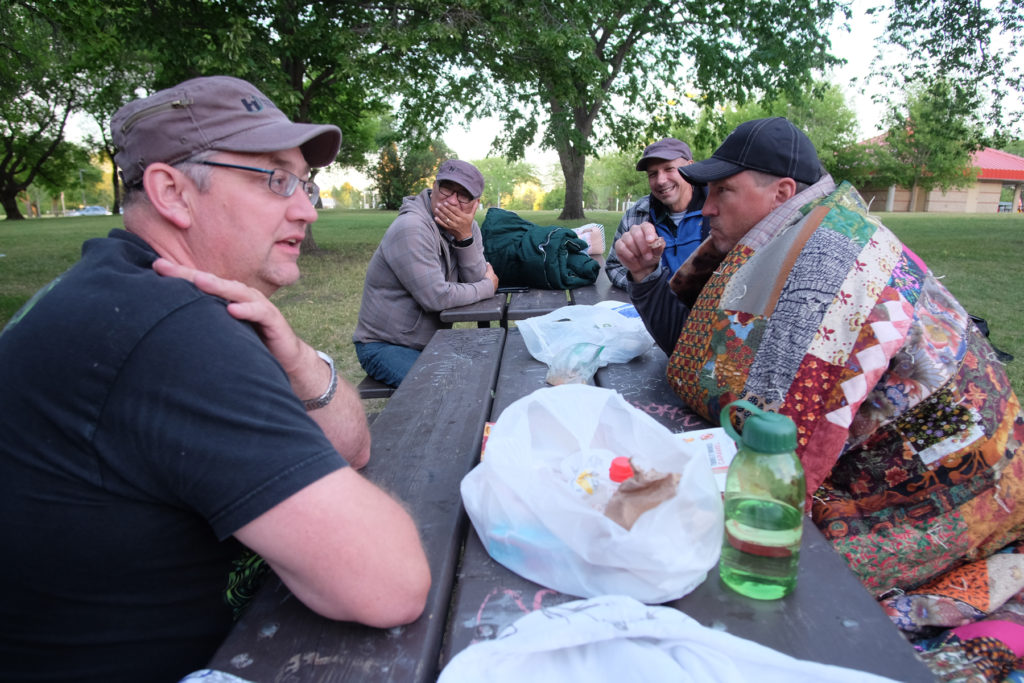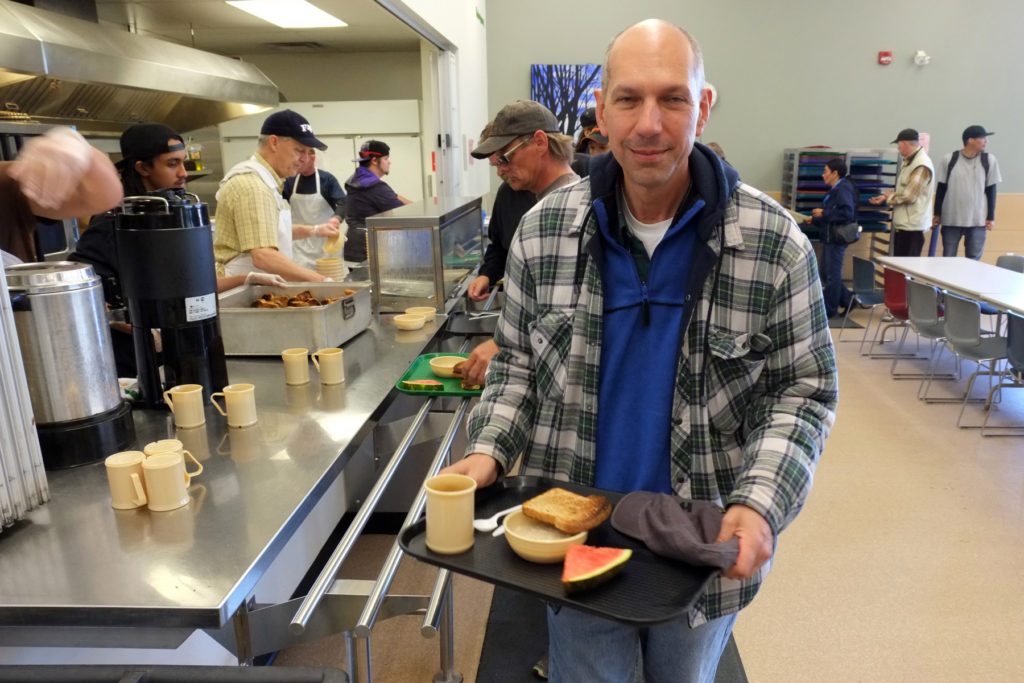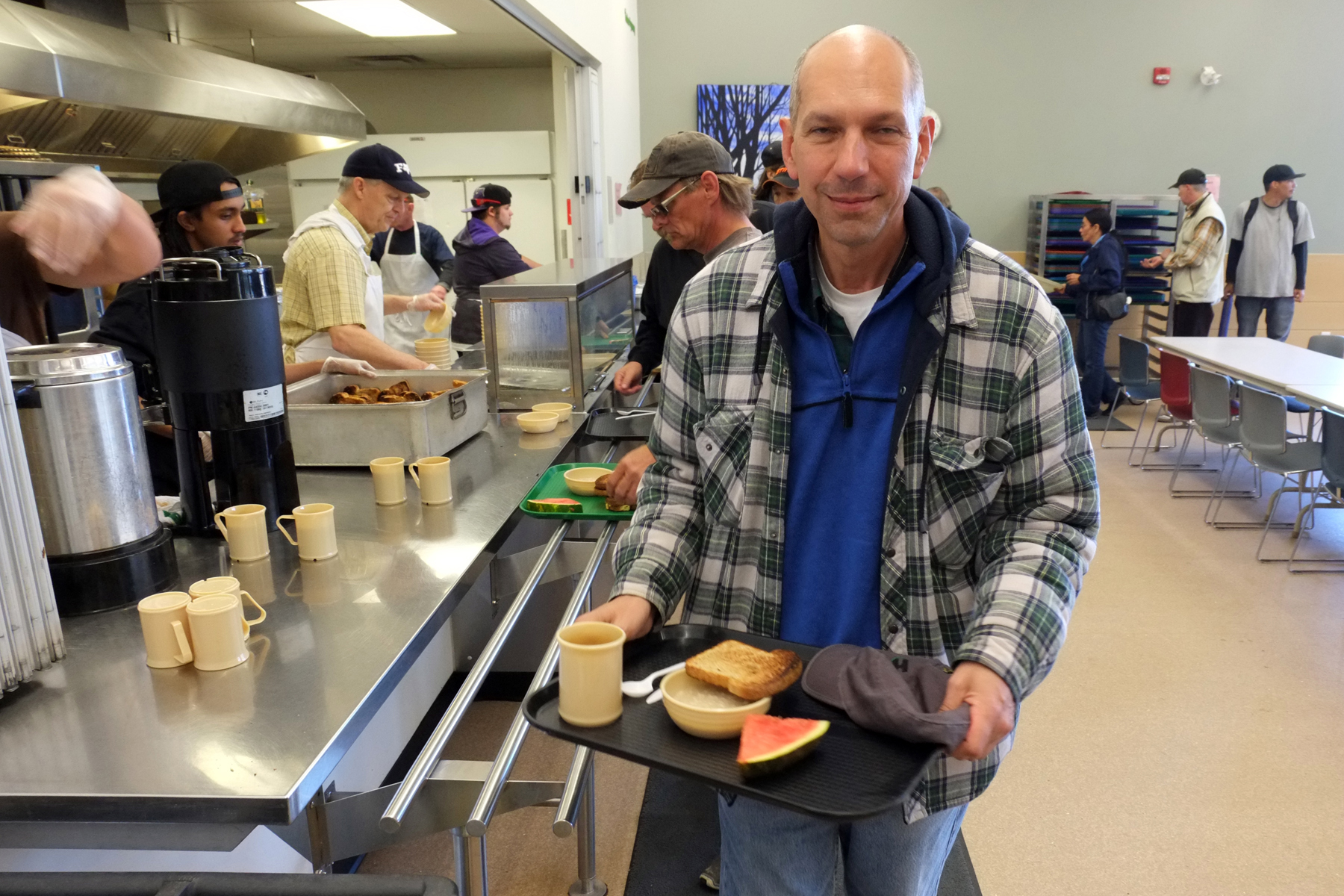SASKATOON, Saskatchewan (CNS) — Thirty-six hours may not seem like a long time to be without a home, but for Bishop Donald J. Bolen of Saskatoon and nine others, it was long enough to better understand what being homeless is really like.
The bishop, who lives in an apartment in central Saskatoon, said the brief experience of living on the streets opened his eyes.
“The most powerful experience was the vulnerability of the situations that we were in,” Bishop Bolen said after the June 17-18 Sanctum Survivor event to raise funds for Sanctum Care Group, which provides hospice and transitional care for homeless people and individuals struggling with the virus that causes AIDS.

“There are a whole lot of things in my neighborhood that I knew were there and I acknowledged their existence, but I got to see firsthand a lot more of the hurt and the pain in the neighborhood, as well as the joy, and the simple relationships that exist,” he said.
The bishop confessed that the challenges homeless people face are overlooked when driving a car or rushing to get somewhere.
Participants were given a list of tasks to complete during their day-and-a-half of homelessness to demonstrate how even simple undertakings can become daunting for those with limited resources and no place to call home.
“The slowing down of pace and being present in the neighborhood was a very revealing thing,” Bishop Bolen explained. “Once you go slow and you go vulnerably and you are willing to take on each situation and enter into relationship, enter into dialogue, there is a lot of take home in that.”
At a dinner concluding the event June 18, Sanctum Survivor participants reflected on their time outdoors and the struggles that poverty brings, particularly for people suffering from illness, addictions or chronic medical conditions.
[quote_box_right]
How Arizona responds
Circle the City serves patients who aren’t sick enough for the hospital, but who needs regular access to medical treatment so they can truly heal
[/quote_box_right]
Seeking medical attention, visiting the needle exchange, and obtaining a prescription were among the challenges on the participant task lists. The 10 participants also attempted to obtain financial aid by calling Social Services using a public phone or payphone before contacting AIDS Saskatoon to get a ride to the income assistance office.
Without trespassing, challengers had to keep their phones charged — finding public places to “plug in” to keep their phone going for safety, check-ins and social media posts. Another task involved finding places to wash hands at least nine times in one day, especially attempting to do so when sourcing food or seeking shelter. Some participants had the challenge of attending to oral hygiene as well.
Participants also were challenged to complete an act of kindness for someone on the streets of Saskatoon. “An act of kindness can go a long way, especially for someone who experiences poverty, homelessness or chronic illness,” noted the instruction sheet.
The daunting task of asking strangers for money was a difficult hurdle for some participants, who were encouraged to notice the reactions of passersby.
“One of our challenges was to buy a meal, and therefore we had to do the panhandling to get the money,” Bolen described. “Chief Felix (Thomas, leader of the Saskatoon Tribal Council) and I were on 20th Street. … He popped his hat down (on the sidewalk) and I popped my hat down, and we were there for a little over an hour. Other than the two family members who came to greet Chief Felix, and one other person who said ‘hi,’ nobody looked at us. It was an experience of the invisibility of the homeless or the poor and vulnerable.”

[quote_box_right]
How Arizona responds
Volunteer and donor efforts allow the vulnerable to get a warm meal through:
- André House
- Churches hosting Family Promise clients
- Paz de Cristo
- St. Vincent de Paul’s five Valley dining rooms
[/quote_box_right]
Sanctum Survivor challengers were able to eat breakfast and lunch at Saskatoon Friendship Inn, which provides a free meal service 365 days a year. In addition, each participant was assigned a place to go for the night such as the Salvation Army shelter, the Brief Detox Unit or outdoors at Kinsmen Park.
“You hear stories in your office, and you have some empathy, but you really don’t know,” said Dr. Morris Markentin, Sanctum Care Group president, one of five participants to sleep on the ground in a park during the challenge. The temperature dropped to the mid-40s at night, cold, but not too cold for mosquitoes.
“I’ve been fortunate in my life to never have been hungry and cold and homeless and last night was tough,” Markentin said. “I had this lovely blanket (donated to him by a local pastor), but the ground was cold. It wasn’t safe. Every time you opened your eyes … there was someone always around.”
[quote_box_left]
Related
The effect being ‘homeless’ had on actor Richard Gere
[/quote_box_left]
At the closing dinner, participant Shirley Isbister, president of Central Urban Metis Federation, a social service agency, stressed the importance of having low-cost housing and sustainable meal programs in the community. “We also need some designated housing specific to people with difficulties and illnesses,” she said.
Danielle Chartier, a member of the Legislative Assembly of Saskatchewan, noted how “it is a 24-7 job to survive on the streets. … Your goal is to get food, your goal is to get shelter, and it’s this weird sort of limbo. … Not having a place to go home to is not a nice experience at all.”
The 10 participants gathered sponsors to support their experience, raising $135,000 Canadian ($105,480 U.S.) for Sanctum Care Group.
Related
https://dynamiccatholic.com/year-of-mercy/reflections/feed-the-hungry-som/







